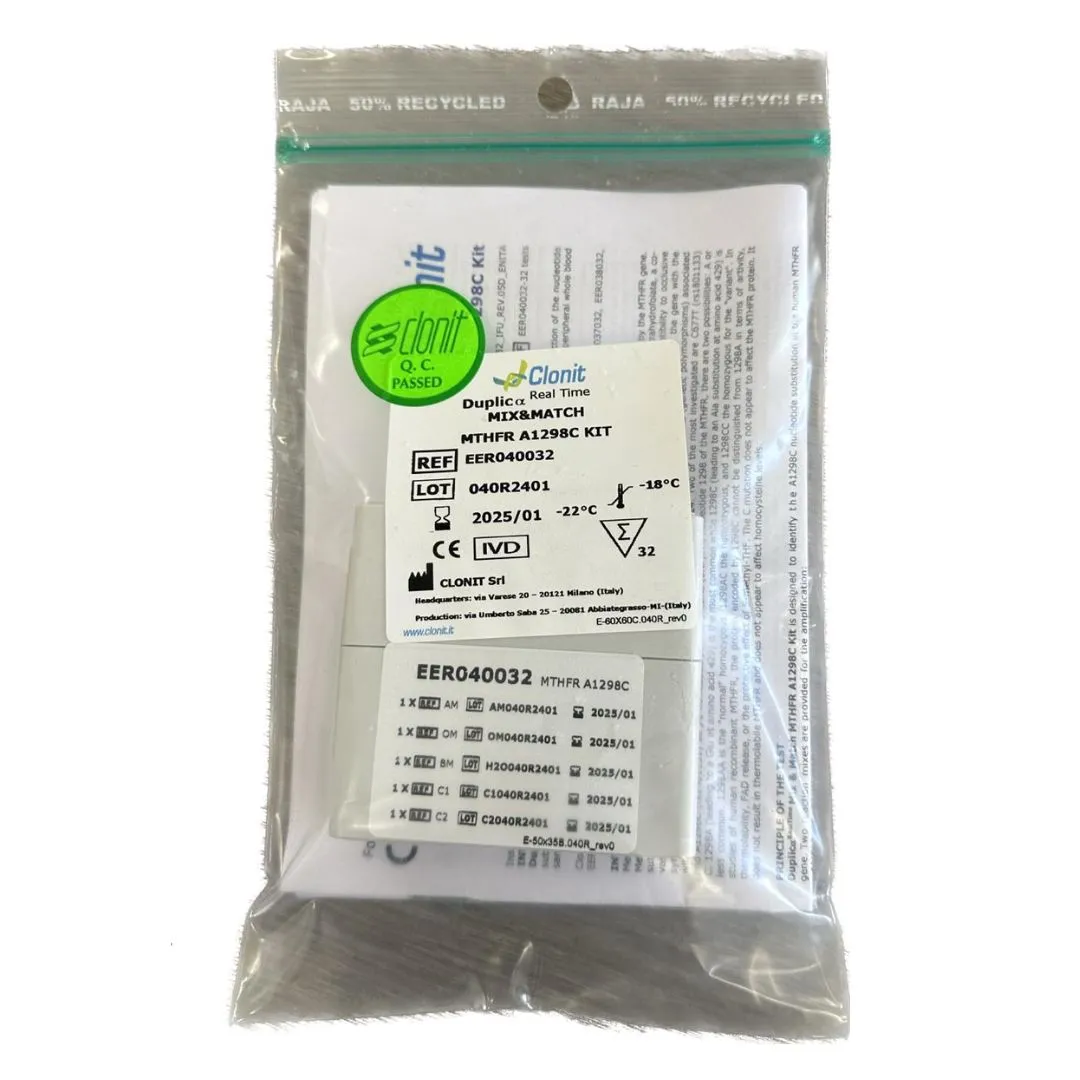.webp)
DuplicαRealTime Mix & Match FACTOR II Kit
Overview
Prothrombin G20210A (also the Prothrombin 20210 mutation, the Factor II mutation, or the Prothrombin mutation) is a genetic variant that approximately doubles or triples the risk of forming blood clots in the veins. The variant is commonly associated with the Venous Thromboembolism (VTE) disease, which includes both deep vein thrombosis and pulmonary embolism.
About 2 to 3% of Caucasians carry the Prothrombin G20210A variant, and it confers a 2 to 3 fold higher risk of VTE. Deficiencies in the anticoagulants Protein C and Protein S give a higher risk (5 to 10 fold). Behind non-O blood type and Factor V Leiden, Prothrombin G20210A is one of the most common genetic risk factors for VTE. The variant causes elevated plasma Prothrombin levels (hyperprothrombinemia), possibly due to increased pre-mRNA stability.
Prothrombin is the precursor of Thrombin, which plays a key role in causing blood coagulation. G20210A can thus contribute to a state of hypercoagulability, but not particularly with arterial thrombosis. Recently it has been showed a 1.3 fold increased risk only for coronary disease. Heterozygous carriers who take oral contraceptives are at a 15 fold increased risk of VTE, while carriers also heterozygous for Factor V Leiden have an approximate 20 fold higher risk and it seems to be increased when FII G20210A transition is associated with the Factor V Leiden mutation.
In a recommendation statement on VTE, genetic testing for G20210A in adults that developed unprovoked VTE was disadvised, as was testing in asymptomatic family members related to G20210A carriers who developed VTE. In those who develop VTE, the results of thrombophilia tests (wherein the variant can be detected) rarely play a role in the length of treatment.
Targets:
- Nucleotide G20210A substitution of the blood coagulation Factor II gene
- Internal Control (IC)
Diagnostic samples:
- Peripheral whole blood samples collected in EDTA
DNA Extraction:
-
Compatible with the most common DNA Extraction and Purification Systems
Real-Time PCR instruments:
-
Compatible with the most common Real-Time PCR Systems
- Categories : PCR Kits, Diagnostic Use, Human Diagnostics
.webp)

.webp)